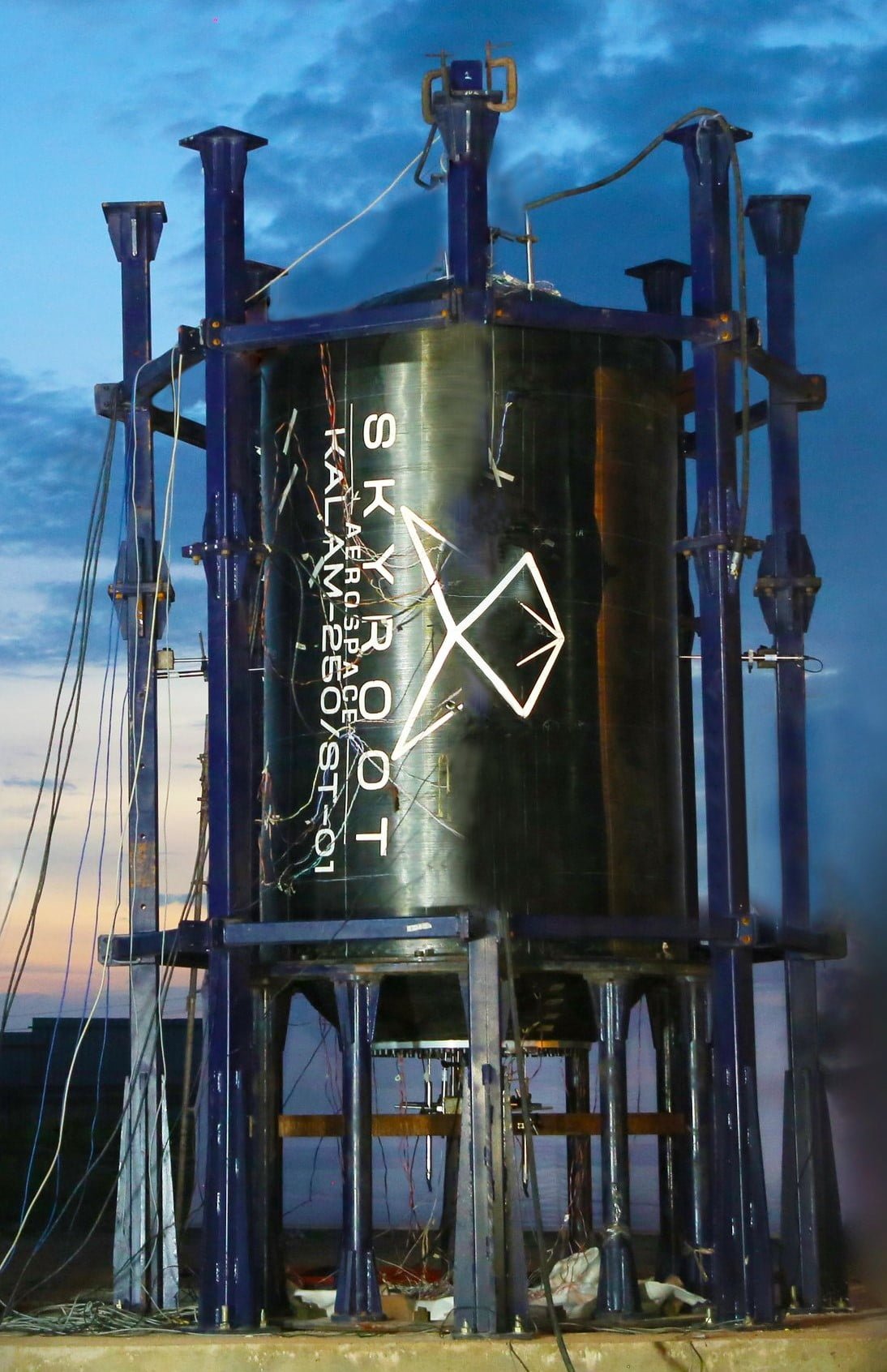Skyroot Aerospace, an Indian startup, has successfully conducted the 2nd stage Kalam-250 flex nozzle actuation test for the Vikram-1 rocket. The test validates the performance of control electronics, electromechanical actuators, and flex-seal. Now Vikram 1 is closer to its maiden flight.
In a flex nozzle test, a component named a flex-seal demonstrates the capability to maneuver within combustion gas reaching temperatures of approximately 3000°C. Operated by high-precision electromechanical actuators under the command of the mission computer, the flex-seal adjusts to direct combustion gas at supersonic speeds, effectively guiding the rocket in the desired direction.

Kalam-250
The Kalam 250 serves as the second-stage engine for the Vikram 1 rocket, developed by Skyroot Aerospace. It derives its name, Kalam, from the inspiration drawn from the former President of India, APJ Abdul Kalam. Vikram 1 is India’s first privately designed and built orbital-class rocket which can carry a 500 kg payload into Low Earth Orbit ( LEO ) and Sun Synchronous Orbit ( SSO ). Vikram 1 is expected to launch in 2nd quarter of 2024. On June 12, 2018, Pawan Kumar Chandana and Naga Bharat Daka founded Skyroot Aerospace.
Read all about Vikram-1: India’s first private orbital class rocket
Read this also Indian Space startup building fuel station in Space!


